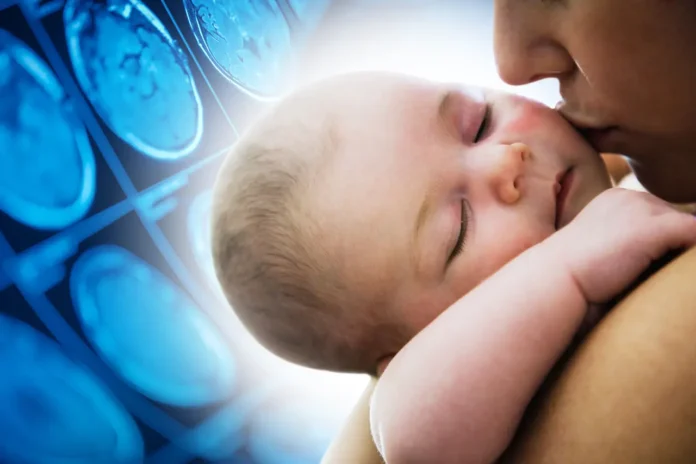
Being pregnant and having a baby is one of the most magical times in your life, but sometimes the unthinkable happens. Birth trauma, specifically brain damage, can have life-altering consequences. There are many scenarios in which this can occur, so seeking support is important.
If you believe brain damage at birth has occurred due to medical negligence, speak to specialist litigators to explore your compensation options.
What Can Cause Brain Damage at Birth?
Many different factors can cause brain damage either during the pregnancy, during the birth, or shortly after.
A lack of oxygen during birth is a common cause, either from the umbilical cord getting trapped or the mother suffering complications resulting in lower oxygen levels in her blood.
Accidents are a worry in pregnancies, especially if there has been a blow to the stomach. Although it is incredibly unlikely, a severe fall or impact can cause fetal skull injuries which can then lead to brain damage.
What Are the Signs of Brain Damage in Newborns?

There are several indicators of brain damage in newborns, although they can all be indicators of other things. These include:
- Oversized forehead
- Undersized head overall
- Unusual facial features
- External head injuries
- Vision and hearing problems
- Seizures
- Not hitting developmental milestones such as rolling, holding their neck up
- Intense crying with an arched back
What Are the Effects of Infant Brain Damage?
Brain damage can affect every aspect of an infant’s life, and yours as parents. Any neurological issues may be apparent fairly quickly, such as difficulty feeding and swallowing, or finding sleep challenging. This will mean you need to make adjustments such as using a feeding tube. Whilst your child may grow and be able to eat a bit easier when they are older, this also may be a lifelong challenge.
Developmental issues may occur, resulting in nonverbal children, so finding ways to communicate as they get older is key. Introducing sign language from a young age is helpful for all children as it enables them to communicate their needs.
Although it can be easy to jump to the most serious consequences of brain damage in infants, you may experience more milder symptoms. This will allow your child to live a fairly normal life with the correct support.
How Common Are Brain Injuries at Birth?
Thankfully, brain injuries are uncommon at birth but that does not make them less devastating. The UK Government pledged £3 million to improve maternity care and safety. The aim is to halve the number of brain injuries that occur by 2025.
This comes after feedback from midwives, doctors and people who have used maternity services in the past few years.
Prevention and Prenatal Care

Prevention and prenatal care are crucial aspects of ensuring a healthy pregnancy and minimizing the risk of birth-related complications. Adequate prenatal care involves regular check-ups with healthcare professionals, following medical advice, and maintaining a healthy lifestyle. It helps in identifying and addressing potential issues early on.
Pregnant individuals should be vigilant about attending all scheduled appointments, taking prescribed supplements, and managing chronic conditions like diabetes or hypertension.
Moreover, avoiding harmful substances such as tobacco and alcohol during pregnancy is essential. By prioritizing prenatal care, expectant parents can significantly reduce the likelihood of complications that may lead to brain damage at birth.
Treatment and Rehabilitation
Treatment and rehabilitation play pivotal roles in the lives of infants affected by brain damage at birth. Early intervention is crucial for addressing developmental challenges and improving the child’s overall quality of life.
Various therapies, including physical therapy, speech therapy, and occupational therapy, can aid in enhancing motor skills, communication, and daily functioning.
These interventions are tailored to the child’s specific needs and can commence shortly after diagnosis. Parents should work closely with healthcare professionals to create a comprehensive treatment plan that supports their child’s growth and development. Additionally, continued monitoring and adjustments to the treatment regimen may be necessary to adapt to the child’s changing needs over time.
Emotional Support for Parents
Emotional support for parents is vital when facing the challenges of caring for an infant with brain damage. Parents often experience a range of emotions, including grief, frustration, and anxiety, as they navigate this unfamiliar journey.
Support groups, both in-person and online, can provide a valuable outlet for sharing experiences and receiving guidance from others who have faced similar situations.
Seeking professional counseling or therapy can also help parents manage the emotional toll and develop coping strategies. Parents need to prioritize self-care and lean on their support network, including family and friends, to ensure they can provide the best possible care and support for their child.
Legal and Financial Aspects

Legal and financial aspects come into play when brain damage at birth is believed to result from medical negligence. In such cases, seeking legal advice is essential to understand the options for pursuing compensation.
Specialized litigators can assess the circumstances surrounding the birth trauma and determine if there are grounds for a legal claim. Compensation may cover medical expenses, ongoing therapy and rehabilitation costs, and additional support for the child’s future needs.
It’s crucial to consult legal professionals experienced in medical malpractice cases and understand the legal process, including deadlines for filing claims, to ensure that the child’s rights and the family’s financial stability are protected.
Monitoring Developmental Progress
Monitoring developmental progress is a key responsibility for parents of infants who have experienced brain damage at birth. Observing the child’s growth and developmental milestones is essential for early detection of any delays or concerns.
Parents should maintain open communication with healthcare providers and share any observations or worries they have regarding their child’s development. Regular follow-up appointments with pediatricians or specialists can aid in tracking progress and making necessary adjustments to treatment or therapy plans.
Early intervention is often the most effective way to address developmental challenges and improve the child’s long-term outcomes, so vigilance and proactive monitoring are crucial throughout the child’s early years.
Summary
In conclusion, understanding the complexities surrounding brain damage at birth is essential for expectant parents and caregivers. While the occurrence of such injuries is fortunately uncommon, the potential consequences are life-altering.
Prioritizing prenatal care, avoiding harmful substances, and seeking medical advice are crucial steps in preventing birth-related complications. In cases where brain damage occurs, early intervention through treatments and rehabilitation can significantly improve an infant’s quality of life.






